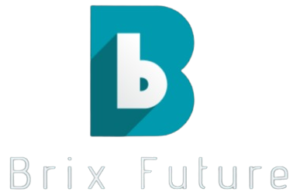How I discovered the OptimScale Job Search Methodology that can help any Engineering PhD Transition to Industry and earn $200k to $1M per year
By Fabrice Abunde (ScientistMBA, PhD)
University education gives you knowledge but to get a high-paying industry job you need to have intelligence.
Your PhD level Knowledge is powerful, but the knowledge alone isn’t enough to earn you a fortune. If knowledge alone could earn you a fortune, then university professors who taught you would have been millionaires.
Put in another way, knowledge is not power but potential power. Knowledge becomes power when it’s skilfully organized and intelligently directed through a definite framework to identify industry problems and provide solutions that scale profits. (See Figure 1).
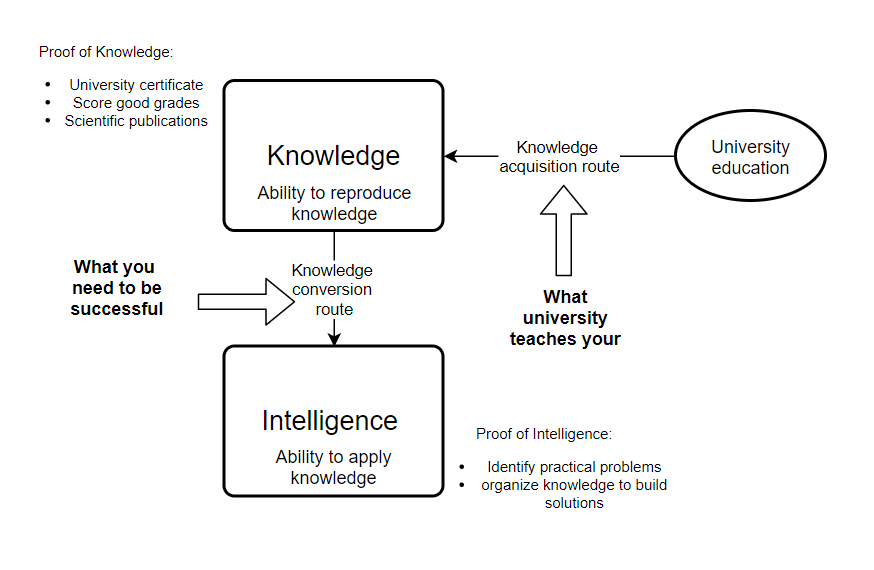
Now let me ask you this one question. Do you think employment strategies that worked before the Covid-19 Pandemic (industrial expansion era) will still work in the era of covid-19 (the information expansion era)?
Today, instead of people moving from one place to another to get information, information rather moves to meet people. This has completely changed the dynamics of the job market.
Even though the job market has changed, the trainings university education gives us is still the same. Same professors, same curriculum for a different job market.
So, what do we see in the job market? Most Engineering PhDs either remain in low paying postdoctoral positions or the get trapped in routine industrial jobs as Bachelor and master’s graduates.
These issues set me on a journey to search for a new job search methodology exclusive for engineering PhDs like you, to help them get high-ticket industry jobs where you earn between $200k to $1M per year while enjoying a flexible work schedule and feeling fulfilled because you apply your PhD level knowledge or research discovery to help companies scale to significant profits.
There’s No Future for Engineering PhDs in Academia
In the US for example, 36,000 STEM PhDs are awarded each year. Meanwhile, only 3,000 STEM faculty positions are created (Nature Biotechnology). This means only 8.3% of PhD graduates every get recruited to faculty positions. This means thousands of PhDs are scrambling for extremely few low-paying academic positions.
Only 12.2% of Engineering PhDs secure employment in academia by their graduation date. This is even worse in most developing countries as most Engineering PhDs are increasing reported to be unemployed or underpaid.
In the Industry, they find it difficult to get high paying jobs.
Most Engineering PhDs who apply for industry jobs often hear things like…being overqualified or underqualified.
In academia the future of engineering PhDs is not only uncertain, but they don’t leverage the full potential of their engineering skills. In industry, they face challenges getting jobs. So how are you supposed to navigate?
It’s impossible to succeed as an engineering PhD without having the right job search methodology.
Who is this Article For?
If you’re reading this document, there’s a good chance that you hold an Engineering PhD degree, and you’re unemployed, underpaid, or unsatisfied with the working conditions at your university or industry job.
- Perhaps you have spent 3-5 years conducting a high-quality research project, published in top academic journals but get all this research results abandoned in the lab or your university library while you end up unemployed or underpaid in the job market.
- Maybe You’ve sent out several CVs to job applications but either get a rejection, no response or hear that you are overqualified or underqualified for the job. When you get a job offer, the pay package (salary) is so low.
- Maybe you tried to transition to an industry job, but you got trapped in routine repetitive tasks, which doesn’t give you the opportunity to feel the true value of your engineering PhD degree.
- Maybe you even tried launching a company from your research discovery but ended up failing or struggling to scale because you don’t have enough VC funding to scale your business.
- Maybe you tried to find out how to apply your specific engineering skills to solve practical industry or business problems but end up not knowing where to start.
- Maybe you’re just there spending long hours in academia with a low salary, unsure of what to do with your Engineering PhD
Whether you’re:
- A recent Engineering PhD Graduate with no work experience searching for a high-paying industry job; or
- An Engineering PhD Professional wanting to turn your routine and low paying industry job into a high-paying consultancy firm; or
- An Engineering PhD Entrepreneur wanting to launch a B2B startup from your research discovery and/or scale it to a hyper profitable multi-million-dollar company even without having any external funding,
this article is for you.
The Big Idea about the OptimScale Methodology


First, here’s the truth … you can get a high-ticket industry job where you earn between $200k to $1M per year while enjoying a flexible work schedule and feeling fulfilled because you apply your PhD level knowledge or research discovery to help companies scale to significant profits.
However, there has been no framework to help Engineering PhDs achieve this.
The big idea is this… Unlike low/average paying jobs that pay for your time or number of tasks you execute, high-paying jobs ($200k to $1M per year) pay you for the results you bring.
Consequently, Engineering PhDs end up underpaid in academia, unemployed or trapped in routine average pay industry jobs not because they aren’t good at what they do, but because they search, apply, and execute jobs, using the wrong approach and lack a Framework to translate their academic knowledge into measurable financial results for companies.
This leads to three fundamental changes:
- Instead of searching for jobs by companies you’re interested in, you rather search for problems faced by these companies.
- Instead of preparing job application package (CVs & Cover letters) based on job postings, you rather prepare a job thesis & Unique Framework based on your skills and problems faced by the companies.
- Instead of applying by uploading documents to application portals, you need to position yourself as a growth partner and allow recruiters rather book and appointment to talk with you.
So, if you want to get a high-paying Industry Job, where you earn between $200k to S1M per year, you must understand this fundamental change in concept as well as the right approach to implement this New Concept at every state of your job search process. These are the secrets I will be showing you in this document.
Now why should you pay attention to me?
For those of you who don’t know me, my name is Fabrice Abunde (PhD), an Engineering PhD like you. A few years ago, I wanted to get a highly paid industry job, where I can apply my PhD engineering skills and/or research discovery to solve practical business/industry challenges.
I looked everywhere for a strategy on how to do this, but I found nothing other than a few books & articles on CV writing, cover letters, interviewing, job search, etc., which could only land me average pay routine jobs, where I do the same work as Bachelor and Master’s degree holders.
I decided to take matters into my own hands and run a series of experiments to find the best strategies that could help an engineering PhD like me earn tens of millions by translating my academic knowledge into industry financials.
Then I discovered the OptimScale Methodology where I can apply the same modeling, simulation, optimization, and control framework Engineering PhDs use to scale lab systems to help companies scale.
My strategy worked so well, that I now earn 4 times the pay of Engineering PhDs by working with different companies to help them scale. First, within 3 months working with a water Tech Group, I brought in over $100k.
I went on to scale 2 other companies within 12 months: one in the developed world to over $1M in Annual Recurrent Revenue and one in developing world to over $250k all while being hilariously profitable.
Every other company wanted to employ me so that I could do the same for them and every Engineering PhD wanted to know how I managed to scale companies just using process modeling and the scientific method.
To date, my OptimScale Methodology has earned me board seats for several companies, invited speaker at leading companies, universities, and institutions, and breaking a world record for developing the first Model-Based Framework to help companies scale.
Now, I don’t share this with you to impress you, but to show you that with your Engineering PhD degree you are highly desirable in the industry, and it is possible to achieve success if you use the right framework.
The Hidden Job Market Data That Showed Me Why All Engineering PhDs Need a New Job Search Methodology.
When I left academia and started gaining experience in the business and industry world, I always asked myself this key question…
What would it take to be a financially free MILLIONAIRE one day?
As a PhD, I answered this question the way PhDs answer all questions…
By doing some research.
What I found REALLY surprised me…
Working for an employer will never make me a million-dollar producer. Most millionaires are entrepreneurs. But there was a big problem… only 1 out of 10 new startup entrepreneurs become successful. So, I knew taking the route of an entrepreneur would be a very risky and tedious one.
I continued to ask myself, could there be another career path where one could easily become a millionaire without starting a company? After digging into more data, I was able to synthesize and create a formula, which I call the Job Market Formula (Figure 1).
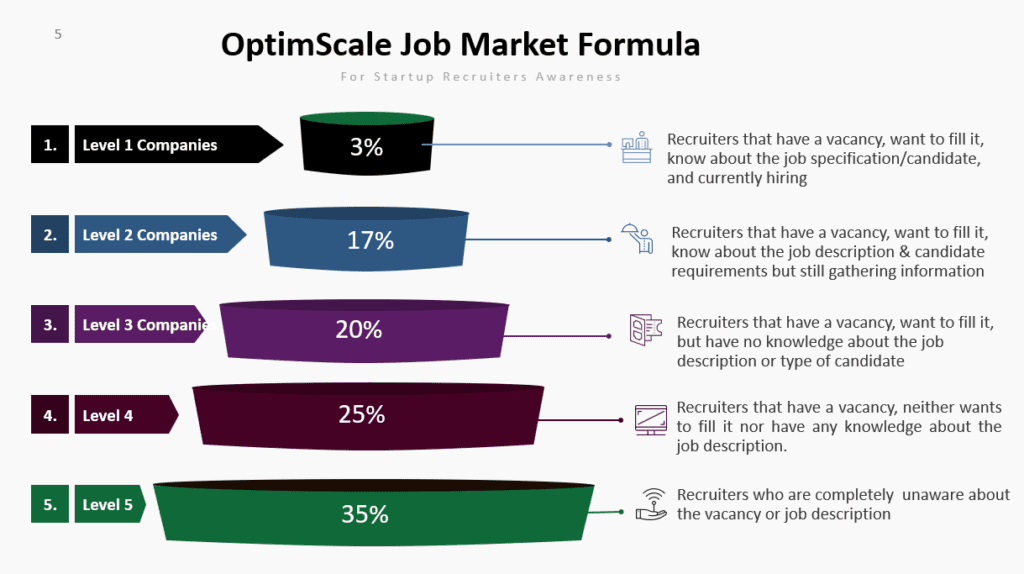

The Job Market Formula shows that in every job market:
- 3% of recruiters know they have a job vacancy (company problem to be solved), want to hire a candidate, know the job specifications (solution steps) and are currently ready to hire a candidate.
- 17% of recruiters know they have a job vacancy (company problem to be solved), want to hire a candidate, know the job specifications (solution steps) but are still gathering information on the quality of candidate to hire.
- 20% of recruiters know they have a job vacancy (company problem to be solved), want to hire a candidate, but have no knowledge about the job specification (solution steps) or the quality of candidate to hire.
- 25% of recruiters know they have a job vacancy (company problem to be solved), but neither want to hire a candidate nor have knowledge about the job specification (solution steps)
This means all the job postings we see out there including those gotten through referrals fall under the 3 % of recruiters who are currently hiring.
For the jobs where recruiters know about the job description (level 1 and 2 companies), the salary and work schedule are often predefined. Most at times you are paid for your time and skills you invest in execution of the job.
For the other 80% of jobs where the recruiter has no knowledge about the job specification, the salary is flexible, and you are mostly paid for results and not for time. The earnings can be infinite depending on the results you bring to the company.
It is this 80% of jobs that can push you to the million-dollar mark. For these jobs you work with the employer and not for the employer reason why these jobs are never seen in the job market.
These jobs require research, and innovation skills, to first identify the problem (job vacancy) as well as the solution steps (job specification) which are all skills Engineering PhDs Posses. But how do we get such jobs, was the next challenge I had.
You see, I could find snippets of information online but wherever I looked, I couldn’t find a cohesive body of knowledge that could help me access the 80% of industry jobs where I work with recruiters and get highly paid for the results I bring and not for the time I work or tasks I execute.
This further contributed to the reason why I developed the OptimScale Modeling Framework to help Engineering PhDs access these 80% of jobs and earn can earn $200k to $1M by helping companies scale.
But things weren’t easy at all. What you know so far are the good parts of my story. What you probably haven’t heard are the bad parts…
First, I tried getting a high paying industry job to no avail…
- I applied for over 200 different industry jobs. Each time I applied, I either I didn’t get a reply, or I got a reply saying other candidates were better than me.
- Twice, I successfully went through the 7 recruitment stages of the Heineken international graduate program but after the final interview I was never called back for an offer.
Then I decided to try starting a business
- I spent my entire savings on a university food and beverage project, and it went out of business a few months after launching due to poor management.
- The next business was an AgriTech Startup. The technology took us 14 months to build only for us to realize we couldn’t monetize it at the end.
- My third company, an EduTech relied on a technology that was never released due to infighting with other founding members and unprofessional behaviour from software developer.
- I tried launching a water tech company. After being held hostage for months by software developers they ended up disappearing with the funds and project.
Even though I had so many failed attempts either in trying to get an industry job or starting a company I couldn’t give up for a couple of reasons. Engineering PhDs needed a more descent path to career success.
After several years of complex engineering research, it was painful to see how they remained unemployed or underpaid in academia.
It was painful to see how they were regarded as undesired in industry. So, I just had to continue to search for a sustainable solution.
Did you know the same approach Engineering PhDs use to scale lab systems to industry can be used to scale Startups to Million-Dollar Companies?
I continued research and try out several ideas with no success until one day, I noticed something when I came across the book: Four steps to the Epiphany by Prof. Steve Blank.
Prof. Steve Blank is a Billionaire & Serial Entrepreneur who founded and scaled 8 successful companies at Silicon Valley and decided to go back to academia to share his experiences.


Steve Blank found that for startups to go from infancy to a large company, they must search for a repeatable and scalable business model and searching for a business model is a scientific process involving four key steps: (1) Discovery, (2) Creation, (3) Validation, and (4) Building & Scale Up.
This realization opened my third eye, because as an engineering PhD, before we scale an experimental system to industrial level, we also go through 4 steps: (1) Modeling, (2) Simulation & Optimization, (3) Validation (4) Automation & Scale Up.
To scale an engineering system, we first develop a test model for the system, simulate it at lab scale & perform any required optimizations, we then validate the optimal operation with different data sets, before we think of taking it to large scale.
When I realized this close similarity between Steve Blank’s 4 steps to the epiphany and the 4 engineering steps to process scale up, I was like “Wow! How crazily in sain can it work like this”?
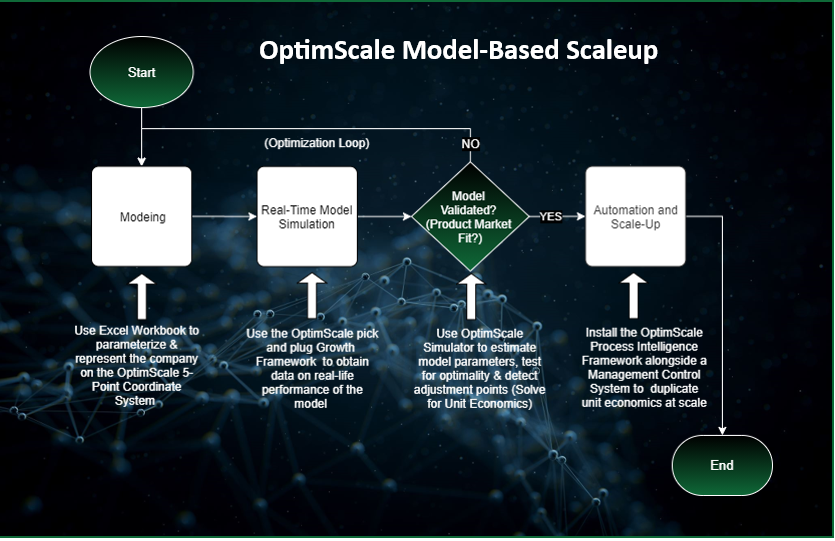

I decided to do some more research to see if I could identify this pattern in other successful companies. After many months of analysing different industry data, I saw this pattern in every successful company:
- First Russell Brunson who scaled his company Click Funnels to over a $100M in profit was using this framework. He also worked with over 30,000 startups and helped them scale to millions of dollars in profits using the same framework.
- Nick Kozmin who scaled salesprocess.io to $18M in 3 years by working with over 2000 startups to help them scale to millions of dollars in profits using this same framework.
- Sabri Suby (Australia) who scaled his company to $30M and generated over $1.33 billion by helping startups in 215 different industries scale to the millions.
In total, I saw close to 32,000 startups scaled to the millions of dollars in profits using one single framework. However, none of them knew they were using the modeling, simulation, and optimization framework.
At that time, I was feeling guilty that after spending 7 years of research and applying modeling, simulation, and optimization to scale engineering systems, I couldn’t realize this huge area of application.
The OptimScale Employability Framework for Engineering PhDs
Then, I realized that the same modeling, simulation, and optimization skills Engineering PhDs use to scale engineering systems from lab to industrial scale can be used to scale startups to millions of dollars in profits.
I realized that instead of starting a company or searching for a job to work for companies, Engineering PhDs can just pair with startups, apply modeling, simulation, and optimization techniques to scale the startups to Millions-Dollar companies and earn a percentage of revenue.
This new Employability Framework for Engineering PhDs is mapped out in Figure 2.
This is why I want you to know that you can earn between $200k to $1M per year by helping companies scale even if you have no industry experience or even if you don’t want to quit your current university position.
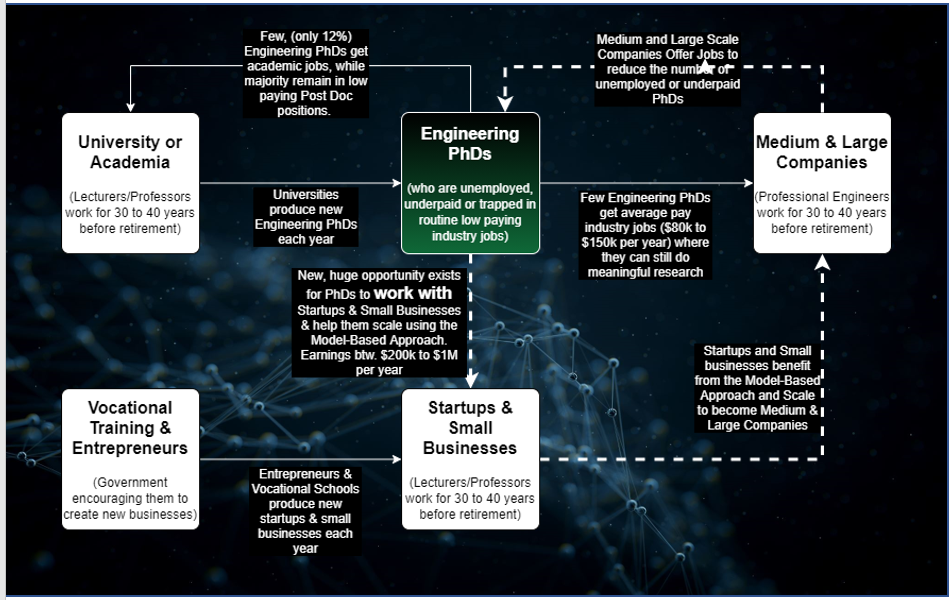

With OptimScale, all Engineering PhDs can apply modeling, simulation, and optimization techniques to scale startups to million-dollar companies.


With this new discovery, my plan was to start pairing with startups in different industries, scaling them to millions of dollars in profits using modeling simulation and optimization techniques and getting paid a percentage of the profits.
I applied the method to scale companies in various sectors including food & agribusiness, logistics & transport, education, manufacturing etc.
However, each new company I scaled did not only involve deriving complex mathematical formulations and time-consuming simulation studies but took me between 3 to 6 months on average to build and install the entire scaling system.
I had to hire a team of 5 full-time people including graphic designers, programmers, and copywriters just to get one scaling system live.
I ended up getting so frustrated that I decided to create a Modeling Framework that would make it easy for Engineering PhDs to scale companies by applying fundamental modeling, simulation, and optimization techniques.
I thought if I could build something that would make it possible to build and install a scaling system in 10 days what used to take us 3 to 6 months, I’d be really happy.
After 8 months of programming and investing every penny, I had ever made, w created OptimScale. I can now build in 10 days—by myself, without any tech people— what used to take me and my team of 5 guys 3 to 6 months.
Today, using OptimScale, I have generated millions of dollars by helping startups in various Niches scale. I also help other Engineering Graduates do same.
Thanks to OptimScale, My Engineering PhD Degree is now highly Valuable.
I now enjoy lucrative salary and flexible work schedule which truly matches the worth of the difficult years I spent in academia trying conduct research and acquire an Engineering PhD degree.
Most importantly I have an Internal satisfaction because I feel the practical application of my engineering knowledge to solve practical business and industry problems.
I don’t just teach, conduct theoretical research, but I leverage my skills contribute to the society, business, and economic development.
In summary, the OptimScale Job Search Methodology involves 2 main steps.
Step 1: Choose an Industry Niche, identify their scaling Problems and prepare a diagnostic report to help you get a job.
Step 2: Apply the modeling, simulation, and optimization framework to solve the problems and scale the company to significant profit levels.
Prof. Steve Blank is a Billionaire & Serial Entrepreneur who founded and scaled 8 successful companies at Silicon Valley and decided to go back to academia to share his experiences.
How to Get Started
There are a couple of ways you can achieve this…
Option 1: You do it yourself.
Option one is to follow the 5 steps to getting a high-ticket job by yourself and take the time to learn everything I have shown you. However:
- You will find it difficult to identify the right industry problem, which when solved will help the company scale to the millions. If the problem is wrongly identified, all the other steps will be irrelevant.
- It will take you so much time and many trials and errors to be able to organize your academic knowledge to build a framework and a job search thesis that clearly illustrates how you can solve the problem. This might end up frustrating you to giving up and returning to your old ways.
I know as engineering PhDs we are tough and can easily learn things faster. But if you try to research online, you’ll only find snippets of information. You can’t find a cohesive body of knowledge that can help you achieve this.
This means you might have to devote months or even years of research to be able to figure out everything by yourself. So, it’s possible trying to do it yourself but it will be painful, costly and time consuming.
Now because you have read this article up to this point, I know you are an Engineering PhD who really wants to succeed. So, I will provide you two other options to help you get started.
Option 2: Watch full training video here and take a quiz.
I have prepared a 2-hour free training video for you on how Engineering PhDs can use the Job Search Thesis to get jobs that pay 200k to 1M per year. The Job search thesis is part of my proprietary OptimScale Job Search Methodology exclusive for Engineering PhDs.
Option 3: Book a Free Industry Strategy Call here and talk to a Growth Specialist
On this call, I will help you figure out where you are now in terms of your industry job search and the steps you need to take to get a high-ticket industry job where you earn between $200k to $1M per year while enjoying a flexible work schedule and feeling fulfilled because you apply your PhD level knowledge or research discovery to help companies scale to significant profits.
Proofs to show that the Job Search Thesis Really Works
The Job search thesis is part of my proprietary OptimScale Job Search Methodology exclusive for Engineering PhDs. Using this methodology, I now earn 4 times the pay of Engineering PhDs by working with different companies to help them scale.
First, within 3 months working with a water Tech Group, I brought in over $100k.
I went on to scale 2 other companies within 12 months: one in the developed world to over $1M in Annual Recurrent Revenue and one in developing world to over $250k all while being hilariously profitable.
Also, don’t just take me for my word. OptimScale is built on my proprietary modeling framework for system scale up that been vetted and recognized by some of the world’s greatest publishers and news agencies such as:


Also, others have made use of the same 4-step approach to earning millions of dollars by helping startups scale.
- Professor Steve Blank (USA) who scaled 8 startups to the billions of dollars,
- Russell Brunson (USA), worked with over 30,000 startups to help them scale to the millions.
- Sabri Suby (Australia) who generated over $1.33 billion scaling thousands of startups in over 215 different niches,
- Nick Kozmin (Canada) repeatedly scaled over 2000 tech startups to the millions,
And the list goes on……
If you need help on how to use your academic knowledge or research discovery to get a highly paid industry job, where you earn between $200k to $1M per year by using the New Process Modeling and the Scientific Scaling Method (OptimScale) to Help Companies Scale, even if you have No Industry Experience, then watch full training video here or book an Industry Strategy call here to talk with me or one of our growth specialists.
For Engineering PhDs:


Hi, I'm Fabrice Abunde, PhD
After 7 years of research, I discovered the OptimScale Methodology, that helps Engineering Masters/PhDs Earn between $200k to $1M per year using Process Modeling and the Scientific Scaling Method to Help Companies Scale, Even if you have no Industry Experience.
If you want a highly-paid industry job or consulting project where you apply your academic knowledge or research discovery to help industries grow, watch full training video on how to use OptimScale Method in doing so.
About the Author: Fabrice Abunde, PhD
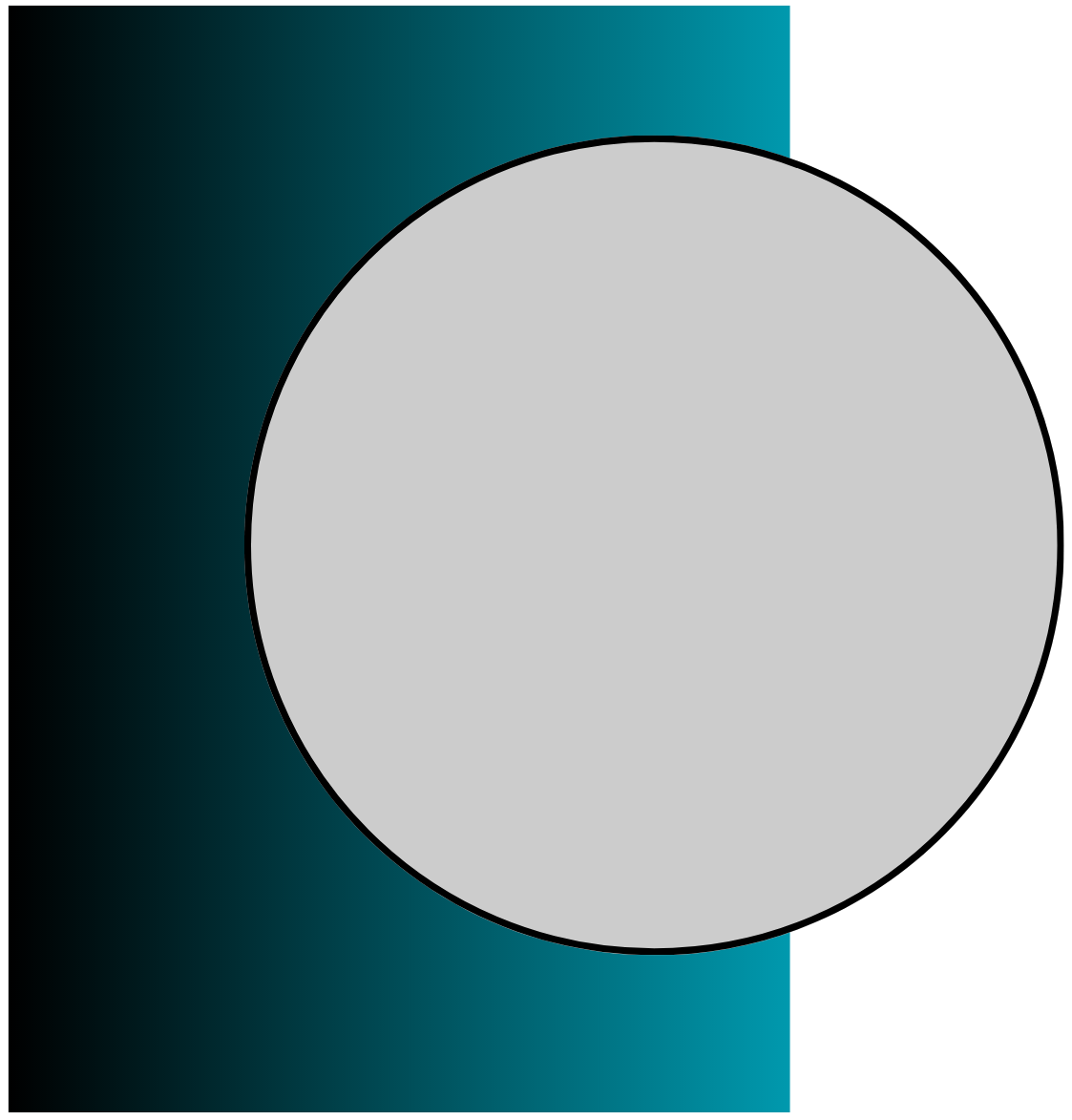

Fabrice Abunde


re are the most common results you'll get if you are trained and certified in the OptimScale Methodology. Here are the most common results you'll get if you are trained and certified in the OptimScale Methodology. Here are the most common r
re are the most common results you'll get if you are trained and certified in the OptimScale Methodology. Here are the most common results you'll get if you are trained and certified in the OptimScale Methodology. Here are the most common r
re are the most common results you'll get if you are trained and certified in the OptimScale Methodology. Here are the most common results you'll get if you are trained and certified in the OptimScale Methodology. Here are the most common r
re are the most common results you'll get if you are trained and certified in the OptimScale Methodology. Here are the most common results you'll get if you are trained and certified in the OptimScale Methodology. Here are the most common r
Similar Articles for you
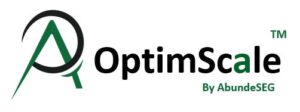



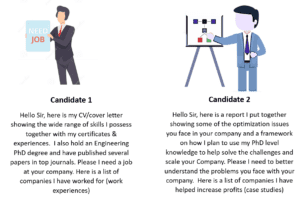

2 Reasons why using A CV/Resume Is Rather Killing your Industry Job Search: Engineering PhDs now use the Job Search Thesis to Get Hilariously High-Paying Jobs.
By Fabrice Abunde (PhD)
Engineering PhDs end up unemployed, underpaid or trapped in routine average pay industry jobs not because they aren’t good at what they do, but because they use the wrong approach and assets to search & apply for jobs.
As an Engineering PhD you can’t search & apply for an industry job the same way regular job candidates do. Getting a highly paid industry job at the PhD Level is not about having the best CV/Resume but about having a Job Search Concept that will differentiate you from other candidates in the job market and help recruiters see you as a partner in growth and not simply a candidate searching for a job and salary to survive.




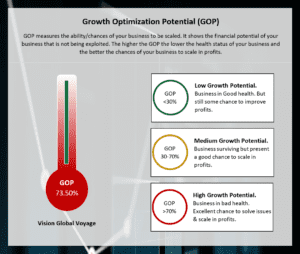

If you’re an Engineering PhD and do this, you’ll only get low paying jobs: Using the Growth Optimization Potential to Access High-Paying Industry Jobs.
By Fabrice Abunde (PhD)
Consequently, Engineering PhDs end up underpaid in academia, unemployed or trapped in routine average pay industry jobs not because they can’t find solutions to problems, but because they can’t identify practical business/industry problems, which when solved will help companies significantly scale in profits.
The big idea is this… Unlike low/average paying jobs where employers identify the problem, establish the solution (job description) and search for the right job candidate, high-paying jobs ($200k to $1M per year) require that the candidate search for the problem, find the solution and search for the employer who faces the problem. In this article I show how to use Growth Optimization Potential to identify practical business or industry problems.
Get the OptimScale white paper for Free.
Step-by-step guide on how to make $200k to 1M per year using the Process Modeling
and the Scientific Scaling Method to help Companies Grow.
Join other Engineering PhDs
Become a Respected and Highly-Paid Industry Consultant. Learn How to Apply the New Process Modeling and the Scientific Scaling Method to help Companies Grow
Copyright 2023 AbundeSEG. All rights reserved

